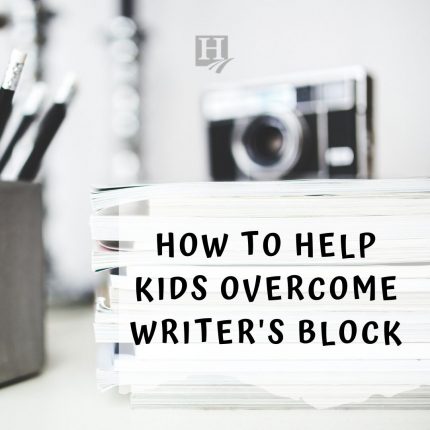
How to Help Teens Overcome Writer’s Block
March 8, 2020Every child has a dream, and for some, it may be to be a newspaper journalist. Others, dream of being a creative writing teacher. And still, others see themselves going on tours as a best-selling author. But some students are actually looking at their umpteenth paper that’s due in two days and thinking, “A writer is the last thing that I want to be. I can’t wait until these papers are over with!”
“This frustration tends to happen most when either we’ve put off an assignment until the last minute, or we’ve realized that we’ve been staring at our computer monitors for hours on end because we simply have nothing to say; we have what our English teachers would call “writer’s block” Lindsey Mark, a writer at uk essay, says. If this is your testimony and you’re looking for a cure, here are six things that you can do that will help you to overcome writer’s block so that you can perform like a writer…even if you have absolutely no intentions of (professionally) becoming one!
Calm Down
Usually, when someone has writer’s block, the first emotion that rears its head is anxiety (or if you let it go for too long, fear). You have a deadline, the paper is worth 35% of your grade and you need to pass this class in order to graduate. OK, this all may be true, but you’re getting really ahead of yourself. Right now, just find ways to calm yourself down so that you can think straight. Drink some tea. Listen to some of your favorite music. Go for a walk. It may seem like these are ways to avoid the task at hand, but the calmer you are, the more centered you’ll become and the more that you’ll be able to do as a direct result.
Get off of the Internet
Sure, surfing the web and spending hours on end talking to your friends on Facebook or Twitter may be fun, but all of the information that you’re getting can send your brain into overload as well. One of the best things you can do before writing is to unplug from all of the “other writing” (and reading) that you’ve been doing while simply “hanging out” online.
Consider the a.m. Hours
Even if you’re a night owl, there are studies to support the fact that we actually tend to be at our “freshest” during the first few hours that we wake up in the morning (especially if we had a good night’s rest the night before). So, if you went to bed at a blank, try revisiting your work as soon as you awaken the next day. You might be surprised how much one night of sleep can change your total perspective on things.
Read Non-Related Material
If you’re getting your school project online and you need to do a paper on the most successful entrepreneurs who don’t have an MBA, but you’re not finding the motivation to complete the paper, you might think that you need to keep reading Forbes magazine and Inc.com. Actually, did you know that it can inspire you more to read stuff that has absolutely nothing to do with the topic that you’re preparing to write about? Reading comical blogs or a fiction book can help to give you a different perspective on writing styles and insights while taking some of the pressure off to (immediately) create your own content.
Just Start Writing
Where most people find themselves getting stuck is at the very beginning. However, once they get over the hump of the first paragraph, things usually tend to flow with much more ease. Bottom line? Rather than thinking about what you’re going to write, why not try simply writing? Sooner than later, a brilliant statement will present itself and you can start “connecting the dots” from there.
Speak to Someone
Surprisingly, a short conversation with anybody can provide you with power, inspiration and new thoughts. There are two ways of using this method. The first one consists in talking to any person on different subjects which don’t relate to the topic of your writing. It can help you have a small rest and refresh your mind. In this case, you distract your attention from continuous thinking about writing.
There is another variant of doing this exercise. You can speak to any person on the subjects related to the topic of your writing. In this case, you can learn new interesting thoughts to describe in your article. You cannot even guess how much useful information you can get.
Besides, this exercise helps you develop your speaking skills and enrich your vocabulary.
Writer’s Block Defeated
There are a lot of methods that can help you cope with writer’s block and succeed in writing even if you are not a writer. First of all, distract your attention from an assignment, get off of the internet, consider your working hours, read non-related material, start writing even if you don’t want to and finally speak to someone on any subject to refresh your mind. It is not difficult to follow such simple pieces of advice.
About the author: Rebecca Carter, an English teacher and happy mother of two wonderful kids. Besides, she likes sharing her experience with others in the form of a small reflective essay. She’s going to create her own blog in order to have an appropriate place for her publications.
Latest Posts

As homeschooling continues to grow in popularity, more parents are taking on the challenge of providing a comprehensive education that not only meets academic standards but also prepares their…
Read more >
June has come and gone, and summer is in full swing! Whether you're traveling this summer or staying close to home, we hope you're enjoying this time with your family. We wanted this month's…
Read more >
Summer is an all-around favorite season for most people. In the U.S., it’s even more exciting for many of us since we get to celebrate Independence Day! The Fourth of July is a wonderful…
Read more >

